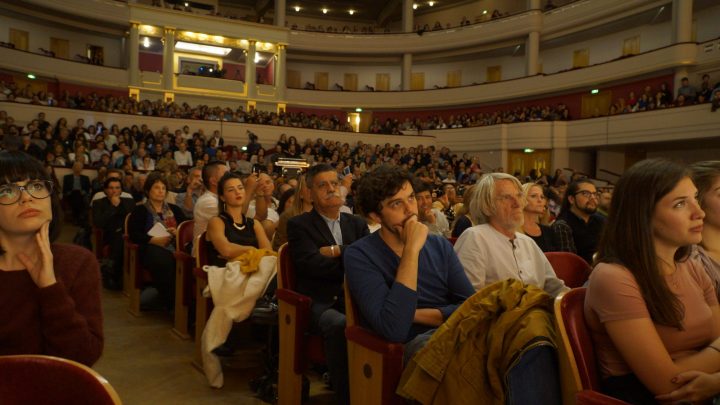On Saturday, 9th of September, the week before the official speech by Jean-Claude Juncker, the President of the European Commission, on the State of the European Union, DiEM25[1] was in BOZAR theatre, Brussels, to show another vision of the European Union.
The event brought together politicians and academics, artists and activists. Three urgent questions on the real state of the European Union were tackled:
- What state does Europe find itself in today?
- What should Europeans do in response to the real state of the Union?
- What does DiEM25 propose to do over the next two years, leading up to the European elections in 2019?
Participating were Yanis Varoufakis (Economist, former Finance Minister of Greece, and Co-Founder of DiEM25), Lorenzo Marsili (Co-Founder of European Alternatives and member of DiEM25’s Coordinating Collective), Alice-Mary Higgins (Independent Senator in the Seanad Eireann), Rosemary Bechler (Editor of OpenDemocracy and member of DiEM25’s Coordinating Collective), Rafael Correa (Former President of Ecuador), Katarzyna Szymielewicz (Co-founder of Panoptykon Foundation and Vice-president of European Digital Rights), Philippe Legrain (former economic advisor to the European Commission President), Jonas Staal (Artist and founder of New Unions with the support of BAK) and Jeffrey Sachs (University Professor of Sustainable Development at Columbia University and Director of the UN Sustainable Development Solutions Network).
Imagine, if you will, a majestic Art Nouveau hall in the centre of Brussels, filling with a crowd of colourful, polyglot militants. People speaking Spanish, English, French, and others… Young people, and the less young, intellectual activists with pony tails and typical specs, not forgetting the crowd of Ecuadorians proudly wearing the green colour of their party… A special, strange, electric and eclectic atmosphere. Something important was underway!
The light in the room slowly dims and to reveal a sculptural installation: huge wooden stars symbolising the Europe of the 28. They have a special feature: they are partially coloured in red. Dutch artist Jonas Staal wants to represent the possible transformation of a capitalist Europe, a return to the essence of European values.
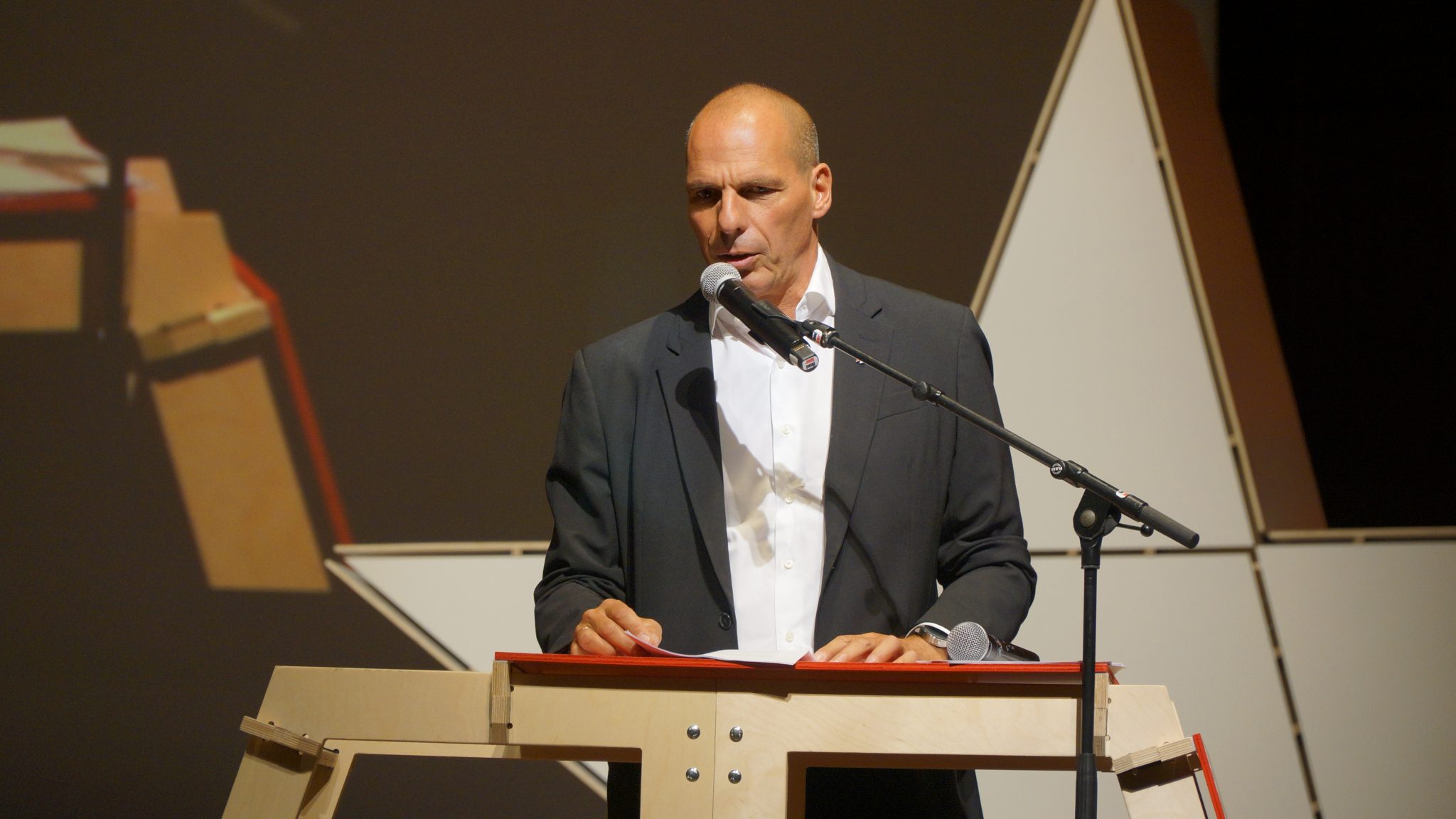
Yanis Varoufakis is there, standing, smiling and determined. With a loud voice, he opens the evening, warning immediately of the disastrous situation in the European Union, underlining the need for a radical change of financial system and denouncing the hypocrisy of immigration and blackmail with Turkey.
“D” for Democracy is the first letter of the DIEM25 movement. “It is the priority,” he reminds us, “it is also the substance of this movement born a year ago in response to a European Union for which democracy is a luxury!”
The speakers then follow one another: they speak out loudly, boldly and courageously, testifying to their experience and vision of a Europe based on solidarity and humanism. These are people who are passionate, convinced and convincing, concrete in their proposals, short in their speeches, and inclusive in their vision.
.
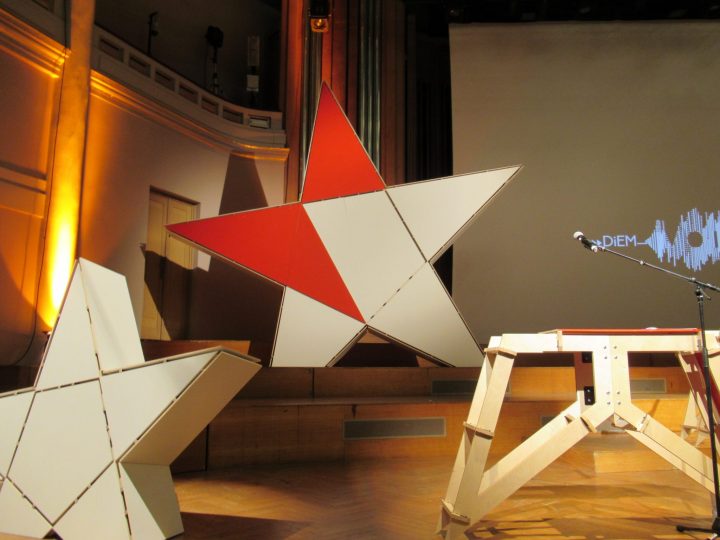
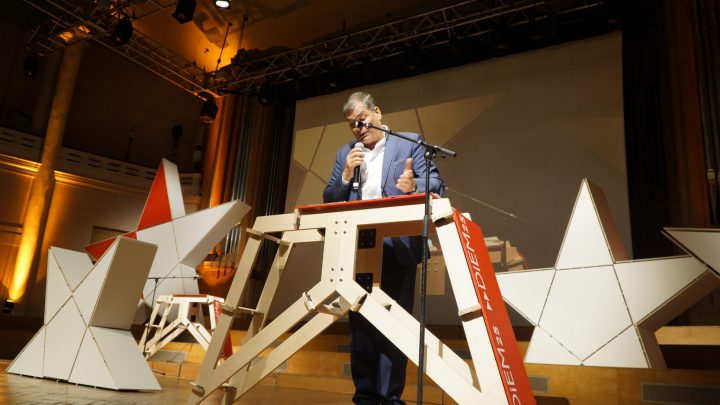
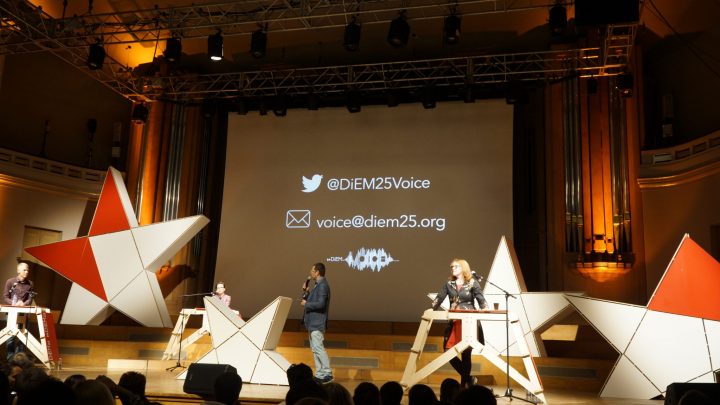
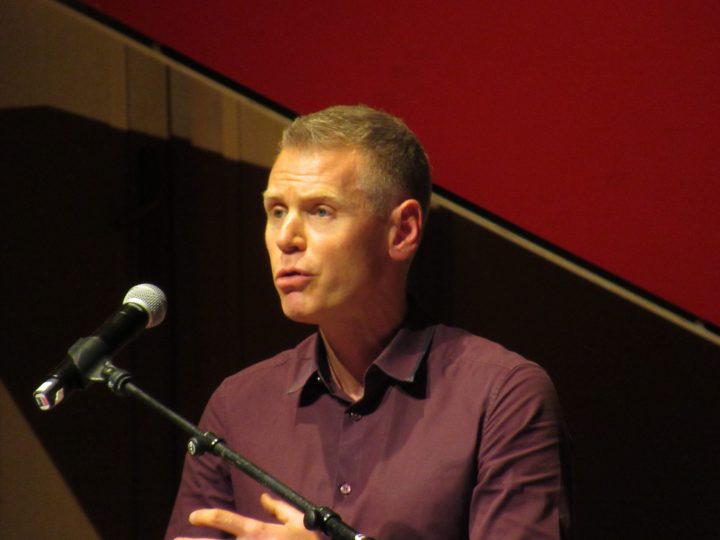
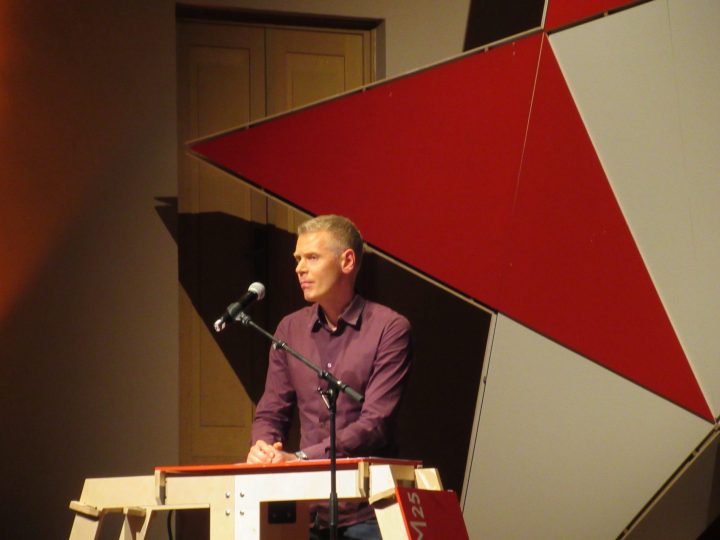
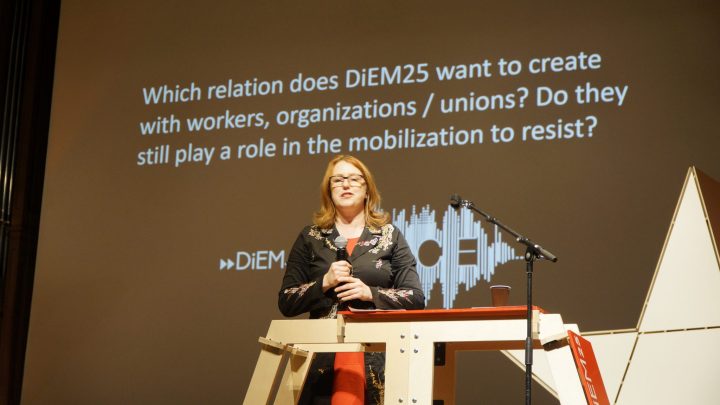
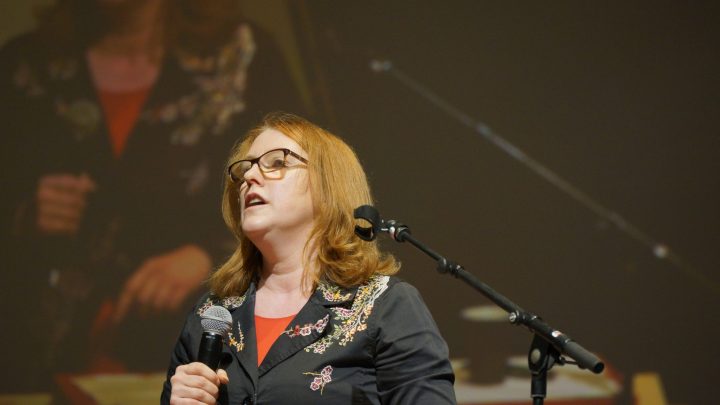
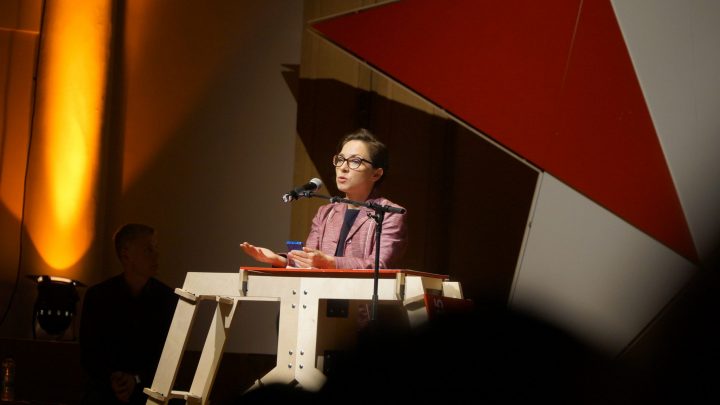
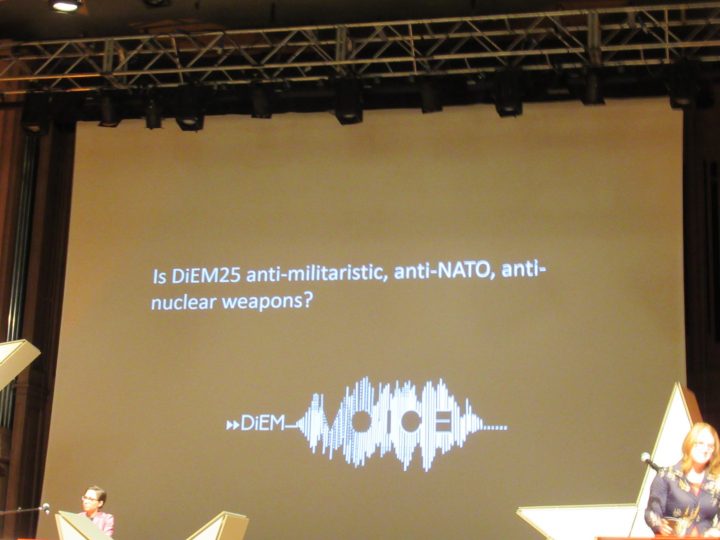
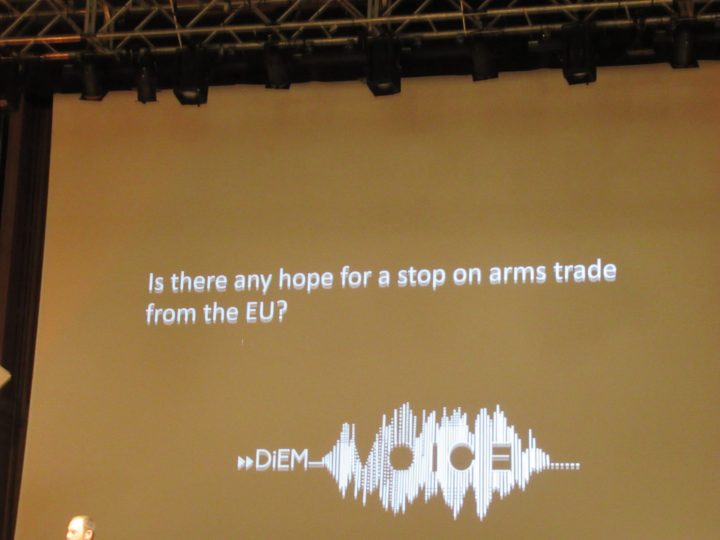
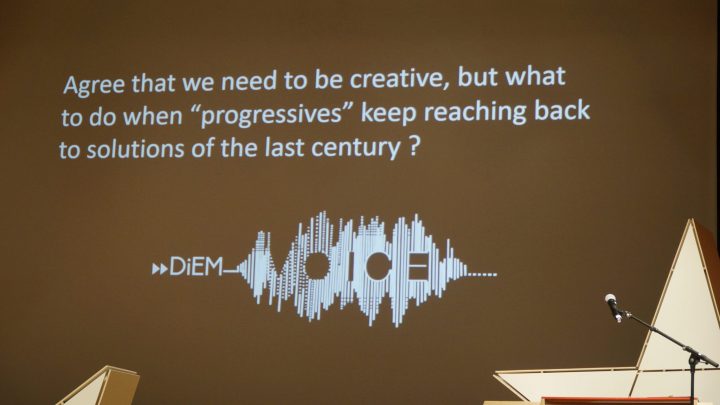
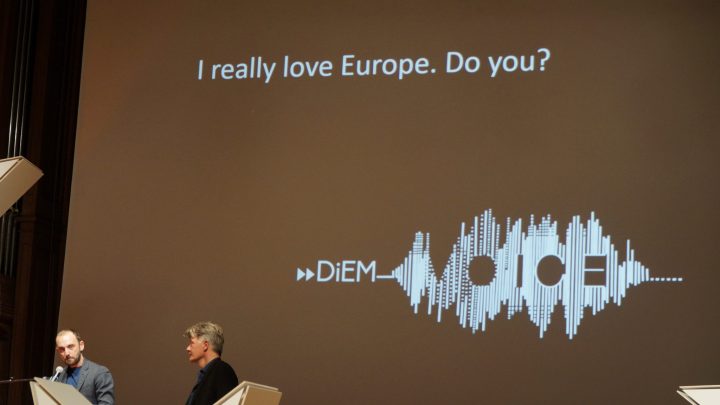
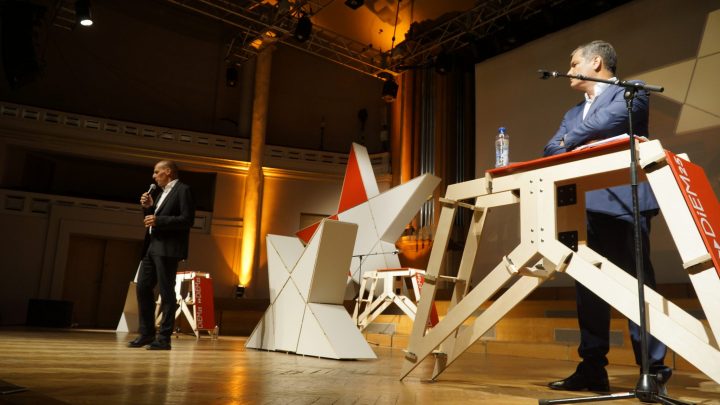
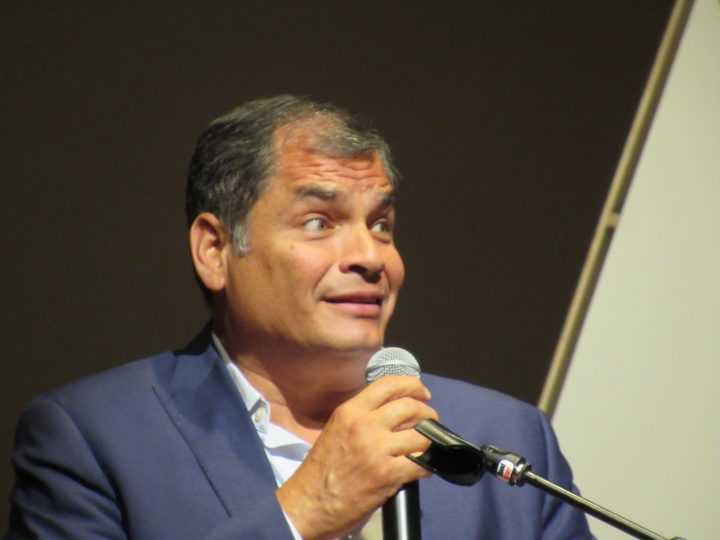
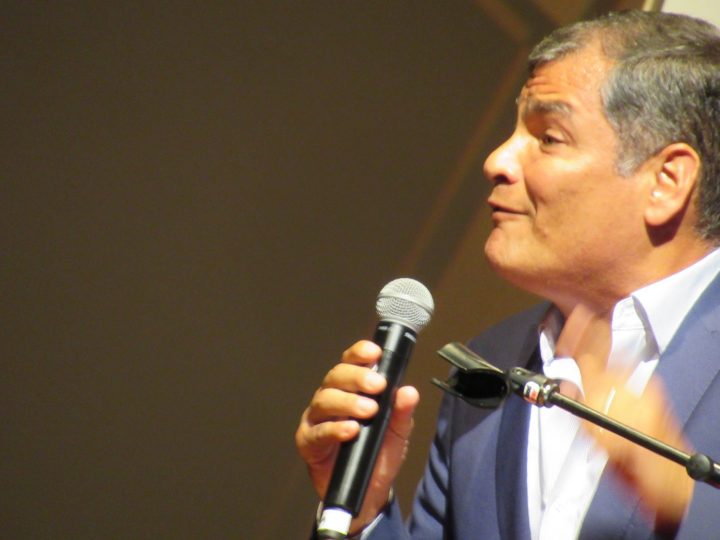
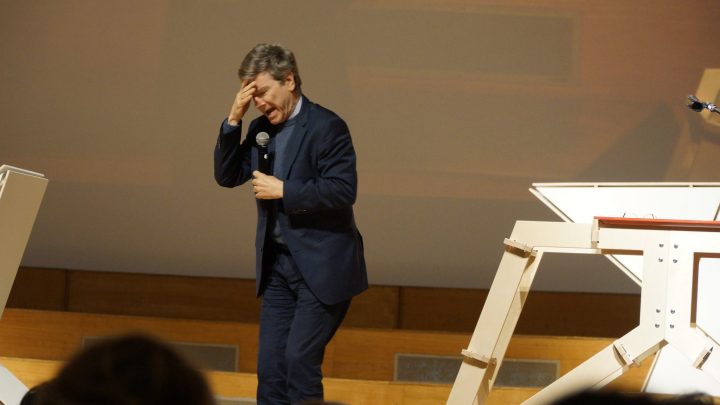
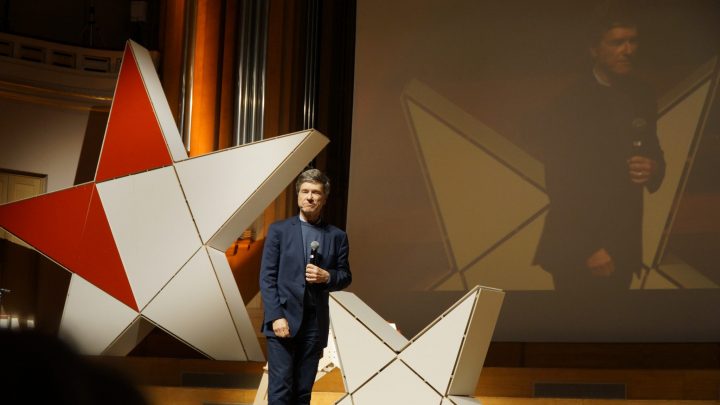
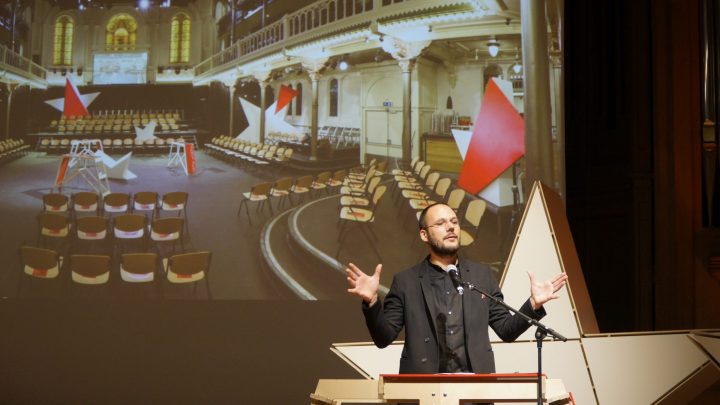
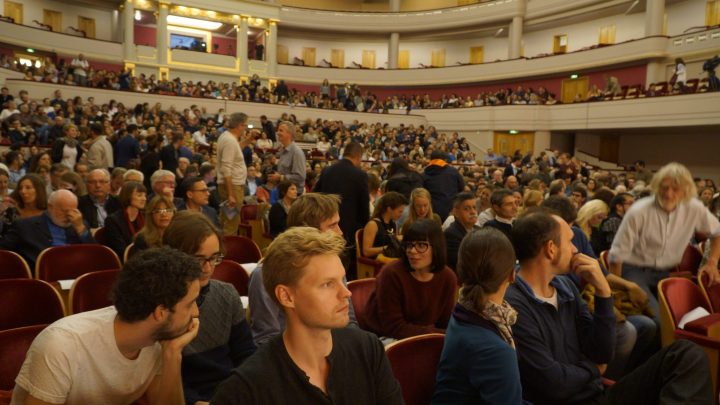
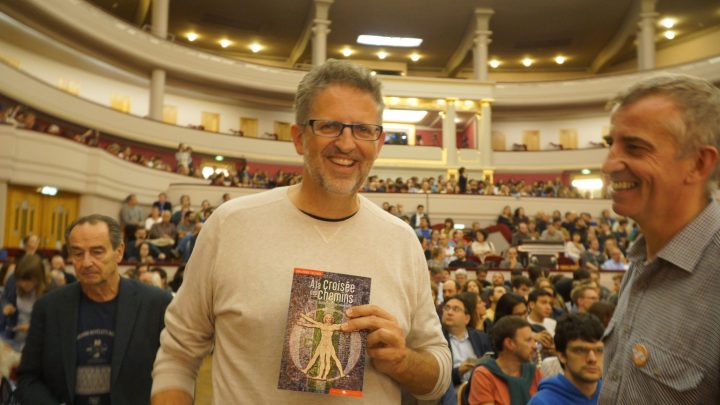
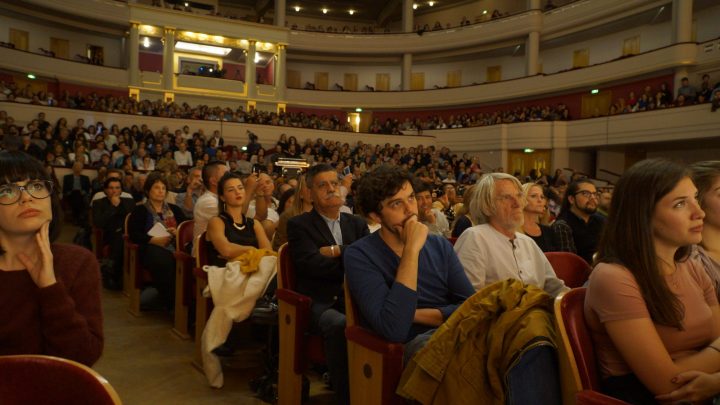
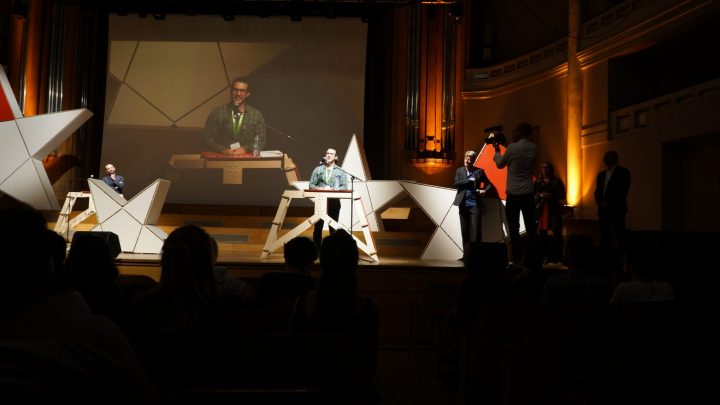
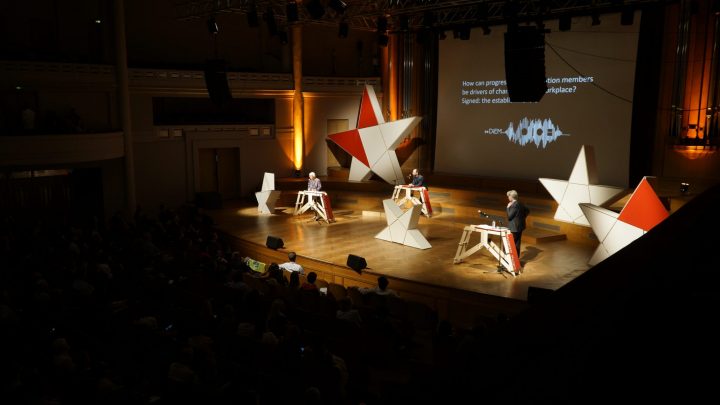
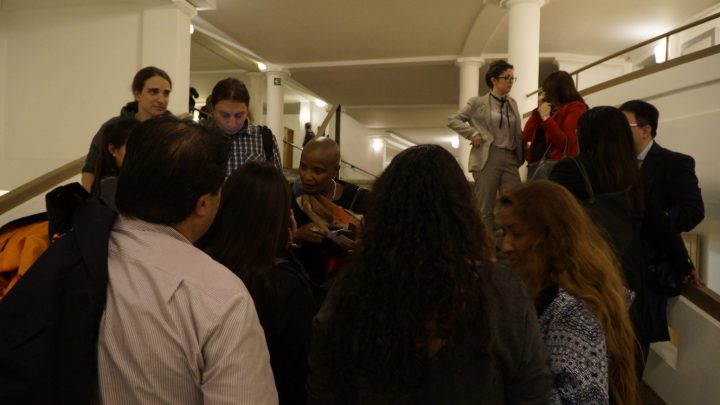
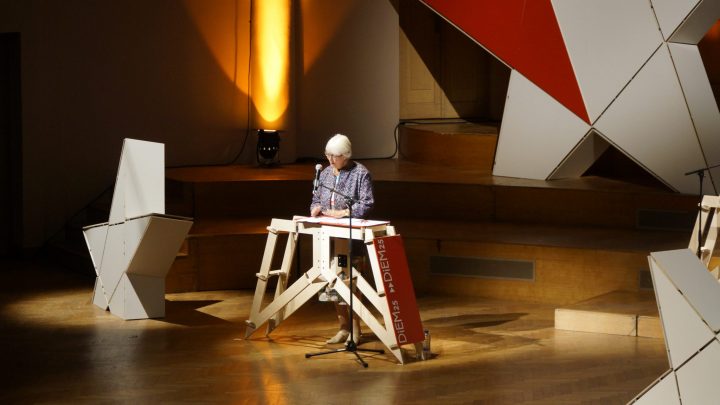
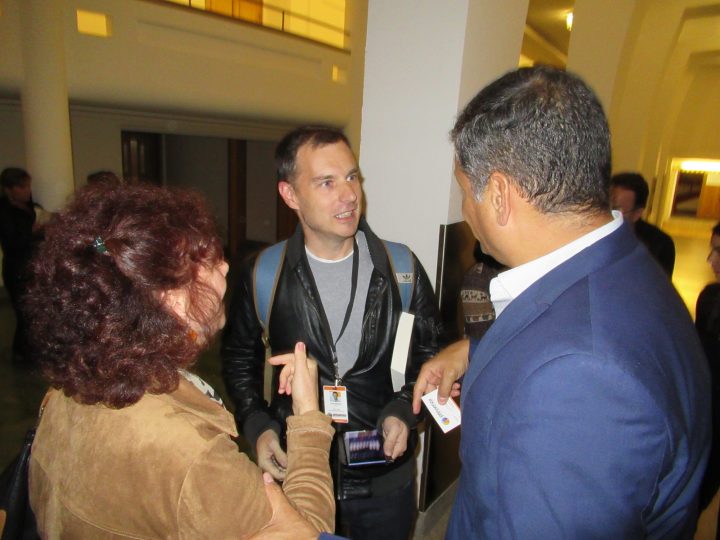
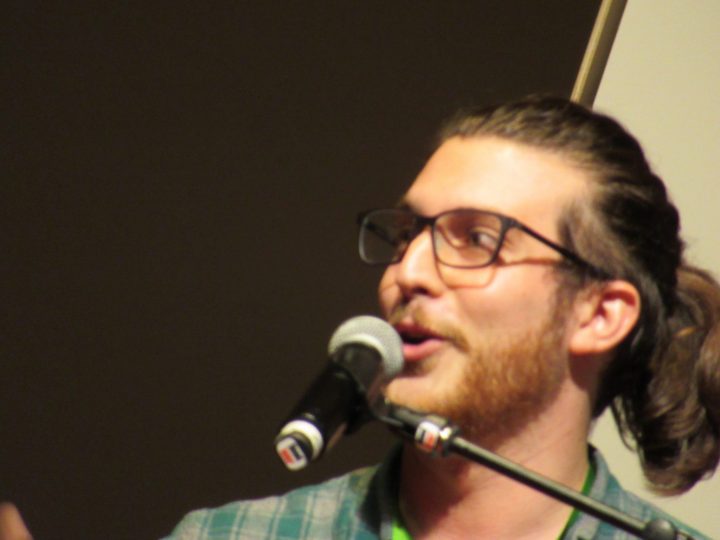
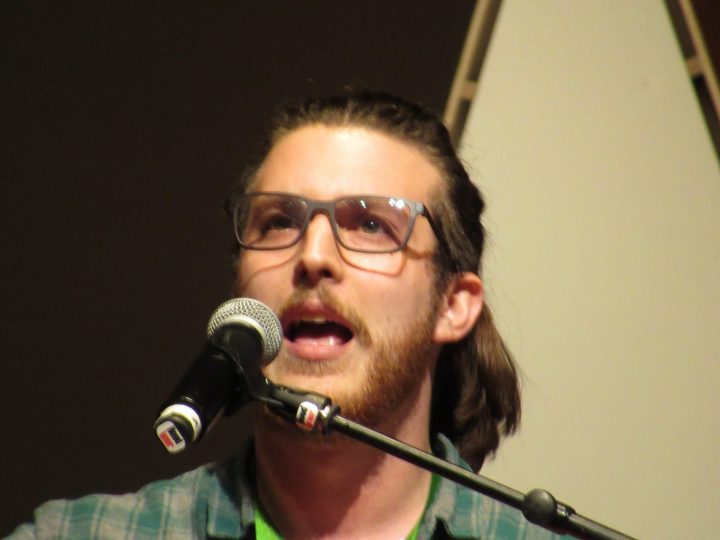
Priorities
- The rejection of unacceptable trade treaties (TTIP, CETA…),
- The problem of immigration, which must be addressed not with the question of “do we accept refugees?” but rather, by understanding where immigrants come from, and why. They flee wars. And who’s causing wars? We, the Western states. So, how can we stop wars, is the real question. The politics of peace does not stop at Europe’s borders.
- Real information to citizens on the consequences of decisions taken.
- An economy at the service of human beings and not capital
Why are artists in this political movement?
“If we want to change the world,” explains Jonas Staal, “we have to imagine it first. And imagination is the domain of Art!” He testifies, “In my country (Netherlands) a brutal and racist party has become the second largest political force. Here in Bozar, we represent an alternative, only if each of us begins to imagine it now.”
DIEM25 is a horizontal organization. During the evening, participants’ questions are communicated by twitter and displayed on the stage screen, allowing for an interactive discussion. Questions are coming up about “how to do it?” on immigration, on the situation in Portugal, and many more…
Rafael Correa, the star of the show.
Dozens of telephone screens suddenly pierce the darkness: under thunderous applause, here is the former president of Ecuador. Varoufakis introduces him with these words: “While the European Union refused Greece’s proposals to get out of debt, at the same time a small Latin American country was implementing new measures that would save it. It is a model.” In a few words, Correa shares the Ecuadorian experience with the public and highlights the incredible opportunity of the European Union, with 28 countries including 24 different languages, different religions and histories. A chance to seize.
To the question “how to change the economic situation?” He simply answers, “For the economy to change, power must go back to citizens, to human beings, and not to capital.”
Women on stage!
Alice-Mary Higgins, Rosemary Bechler and Katarzyna Szymielewicz also talked to us both of their intrinsic desire for commitment and a clear and precise call: “The reason why we must commit ourselves is to prove that together, as Europeans, we can offer a better, more human future”.
The last word by Varoufakis: “our dream: that our project can be presented and put in place for 2019”.
It is an evening that wakes you up and illuminates you: another Europe is possible. We are not alone. The movement is on the move and every citizen is indispensable.
For more information: https://diem25.org/manifesto-long/
[1] The Democracy in Europe Movement 2025 (DiEM25) works to raise awareness, launch campaigns and develop policies to reform the EU. The movement calls on those who believe in Europe to rethink the current structures of the EU and to rebalance power between local, national and European levels. DiEM25 is convinced that only a Europe of solidarity can guarantee peace, prosperity and humanism on our continent.


